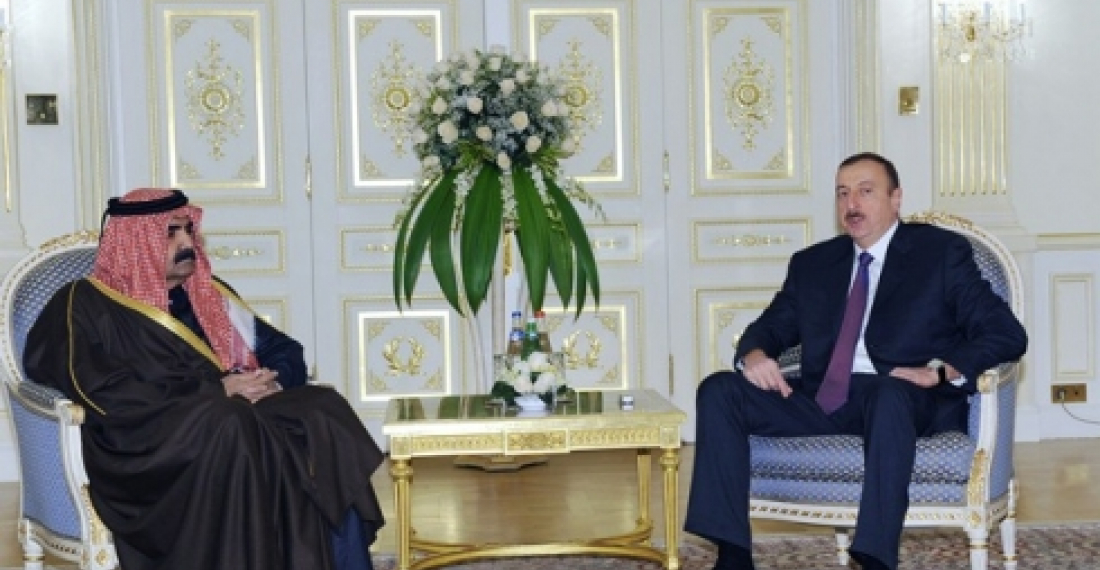The President of Azerbaijan Ilham Aliev yesterday received in Baku the Emir of Qatar, Sheikh Hamad bin Khalifa al Thani who was on a visit to Azerbaijan. Azerbaijani media reported that the meeting focused on cooperation between Azerbaijan and Qatar in various areas, cooperation within international organizations and joint economic initiatives.
Commonspace.eu political editor said in a comment that "this is the second visit of the Emir of Qatar to Azerbaijan and reflects increasing co-operation between the two states who are not only important energy producers but also share a common vision on a number of international issues. Both Qatar and Azerbaijan have complicated relations with Iran and both are active members of the Organisation of the Islamic Conference. Qatar has become an increasingly important player in regional and international issues, especially in the last year. This is not only thanks to its importance as an energy supplier but also due to its financial clout thanks to large reserves accumulated over the last decades. Through the Doha based al Jazeera Television, Qatar has also become an important media player, particularly within the Arab world. Qatar has given support to Azerbaijan in a number of international fora. It also has relations with Armenia, and recently a decision by the Qatar government designated Armenia as one of the preferred countries from where Qatar was willing to accept foreign workers."
source: commonspace.eu
photo: The President of Azerbaijan with the Emir of Qatar at their meeting in Baku n 2 March 2012 (picture courtesy of the press nService of the President of Azerbaijan)







